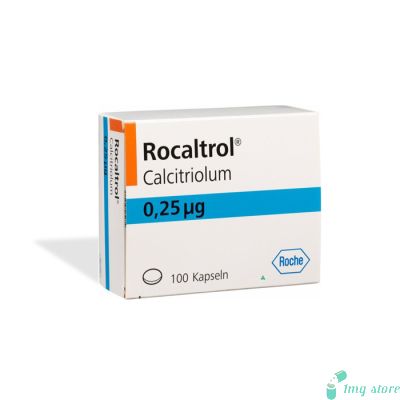Potrate Tablet ER (Potassium Citrate)
Potassium Citrate Tablet ER, also known by its brand name Potrate or Urocit-K, is a medication commonly prescribed to patients suffering from certain urinary tract disorders.
Introduction of Potassium Citrate Tablet ER
Potassium Citrate Tablet ER, also known by its brand name Potrate or Urocit-K, is a medication commonly prescribed to patients suffering from certain urinary tract disorders. It contains potassium citrate as its active ingredient and is available in the form of extended-release tablets. Potassium citrate is a salt that helps regulate the levels of potassium in the body and acts as an alkalinizing agent, which can help prevent the formation of certain types of kidney stones. This medication is typically used under the supervision of a healthcare professional and should be taken as prescribed.
Dosage Information:
The dosage of Potassium Citrate Tablet ER can vary depending on the individual's specific condition and medical history. It is important to follow the instructions provided by the healthcare professional or read the medication guide carefully. Typically, the tablets are taken orally with a full glass of water, usually after a meal or as directed by the doctor. It is important not to crush, chew, or break the tablets, as they are formulated as extended-release tablets.
The dosage strength and frequency may vary, but the usual recommended dose for adults is 1 to 2 tablets (10 mEq to 20 mEq) two times a day. The dosage should be adjusted based on the patient's response to treatment and any side effects experienced. It is essential to maintain an adequate fluid intake while taking this medication to prevent the risk of dehydration.
Order Potassium Citrate Online and Buy Potassium Citrate Tablet ER:
Potassium Citrate Tablet ER, available under various brand names such as Potrate or Urocit-K, can be ordered online from 1mgstore.com with a valid prescription. It is important to consult a healthcare professional before initiating treatment with this medication to ensure proper diagnosis, dosage, and monitoring.
Nutritional Deficiencies and Nutrition Care:
Potassium Citrate Tablet ER may lead to potential nutritional deficiencies due to its impact on electrolyte balance. Prolonged use can cause a decrease in magnesium levels, which may result in symptoms such as muscle cramps, weakness, or irregular heartbeat. Additionally, it can affect calcium absorption, potentially leading to calcium deficiency. To mitigate these risks, it is important to maintain a well-balanced diet and consult with a healthcare professional or a registered dietitian. They can provide guidance on dietary modifications or recommend appropriate nutritional supplements to address any deficiencies that may arise from the use of Potassium Citrate Tablet ER.
Furthermore, a comprehensive nutrition care plan may be beneficial for individuals taking Urocit-K or Potassium Citrate supplements. This may involve monitoring dietary intake, ensuring adequate hydration, and optimizing overall nutritional status to support urinary tract health and minimize the risk of nutrient imbalances.
Before starting treatment with Potassium Citrate Tablet ER (Potrate or Urocit-K), it is important to take precautions to consider:
Allergies: If you have known allergies to potassium citrate or any other ingredients in the medication, you should avoid using Potassium Citrate Tablet ER and discuss alternative treatment options with your healthcare provider.
Kidney Function: Individuals with impaired kidney function or a history of kidney disease should use Potassium Citrate Tablet ER with caution. The dosage may need to be adjusted, and regular monitoring of kidney function may be necessary.
Potassium Imbalance: Since Potassium Citrate Tablet ER contains potassium, it is important to monitor potassium levels in the blood while taking this medication. Individuals with hyperkalemia (high potassium levels) should avoid using this medication unless specifically prescribed by a healthcare professional.
Electrolyte Imbalance: Potassium Citrate Tablet ER/Urocit-K can affect electrolyte balance in the body. It is important to regularly monitor levels of potassium, sodium, magnesium, and calcium, especially in individuals with underlying electrolyte imbalances.
Gastrointestinal Disorders: Individuals with gastrointestinal disorders such as severe diarrhea or malabsorption issues may have difficulty absorbing Potassium Citrate Tablet ER properly. In such cases, alternative treatment options should be considered.
Ulcerative Colitis: Potassium Citrate Tablet ER may exacerbate symptoms in individuals with active ulcerative colitis. Close monitoring and adjustment of the treatment plan may be required in such cases.
Uses of Potassium Citrate Tablet ER:
Potassium Citrate Tablet ER is primarily prescribed to manage certain Urinary tract disorders, particularly those associated with the formation of kidney stones. The medication helps prevent the formation of calcium oxalate and uric acid stones by increasing urine pH, making it less acidic. It achieves this by supplying the body with citrate, which acts as a buffer to neutralize the excess acid in the urine, reducing the likelihood of stone formation.
Potassium Citrate Tablet ER/Urocit-K is also used as a supplement to correct potassium deficiencies in individuals with low potassium levels in the blood, a condition known as hypokalemia. Potassium is an essential mineral that plays a crucial role in maintaining proper heart, muscle, and nerve function. Supplementing with potassium citrate can help restore and maintain the body's potassium levels within the normal range.
Potassium Citrate for Urinary Tract Health:
Potassium Citrate Tablet ER is commonly prescribed to promote urinary tract health. By alkalinizing the urine, it can help prevent the formation of kidney stones, which can be painful and lead to various complications. This medication is particularly beneficial for individuals with recurring kidney stones, as it helps reduce the frequency of stone formation.
The use of Potassium Citrate Tablet ER can also be beneficial for individuals with certain urinary tract infections, as the more alkaline environment created by the medication can inhibit the growth and survival of certain bacteria. However, it is essential to note that the use of this medication for urinary tract infections should be determined by a healthcare professional based on the specific circumstances and underlying causes of the infection.
While Potassium Citrate Tablet ER is generally well-tolerated, some individuals may experience side effects.
Common side effects include:
Gastrointestinal Disturbances: These may include nausea, vomiting, stomach pain, diarrhea, or indigestion. Taking the medication with food or dividing the dose throughout the day may help reduce these side effects.
Alkaline Urine: Potassium Citrate Tablet ER/Urocit-K can alkalize the urine, leading to changes in urine pH. This may cause discomfort, such as a burning sensation during urination or an increase in urinary frequency.
Hypersensitivity Reactions: In rare cases, individuals may experience allergic reactions to Potassium Citrate Tablet ER, including skin rash, itching, swelling, or difficulty breathing. If any signs of an allergic reaction occur, immediate medical attention should be sought.
Electrolyte Imbalances: Prolonged use of Potassium Citrate Tablet ER can lead to imbalances in electrolytes such as potassium, sodium, magnesium, and calcium. Regular monitoring of electrolyte levels is essential to prevent complications.
Help Section - About Potrate Tablet ER (Potassium Citrate)
Can I take Potassium Citrate Tablet ER if I have a history of kidney stones?
Yes, Potassium Citrate Tablet ER is commonly prescribed for individuals with a history of kidney stones. It helps prevent the formation of certain types of kidney stones by increasing urine pH and reducing the acidity that promotes stone formation.
Can I take other medications while using Potassium Citrate Tablet ER?
It is important to inform your healthcare provider about all medications you are taking, including prescription, over-the-counter, and herbal supplements. Some medications, such as diuretics or ACE inhibitors, may interact with Potassium Citrate Tablet ER, affecting its effectiveness or increasing the risk of side effects. Your healthcare provider can guide you on any necessary adjustments or precautions.
How long does it take for Potassium Citrate Tablet ER to start working?
The effects of Potassium Citrate Tablet ER may vary depending on the individual and the specific condition being treated. In general, it may take several weeks to months of consistent use to see the full benefits in terms of reducing the formation of kidney stones or managing potassium deficiencies. It is important to follow the prescribed treatment plan and consult with your healthcare provider for a personalized timeline.
Are there any dietary restrictions while taking Potassium Citrate Tablet ER?
There are no specific dietary restrictions associated with Potassium Citrate Tablet ER. However, maintaining a well-balanced diet and adequate fluid intake can support the overall effectiveness of the medication. Your healthcare provider or a registered dietitian can provide guidance on dietary modifications or supplements if needed.
Can I take Potassium Citrate Tablet ER/Urocit-K if I have gastrointestinal issues?
Individuals with gastrointestinal disorders, such as severe diarrhea or malabsorption issues, may have difficulty absorbing Potassium Citrate Tablet ER properly. In such cases, alternative treatment options or formulations may be considered. It is important to discuss your specific condition with your healthcare provider to determine the most suitable approach for managing your urinary tract health or potassium deficiency.
Potassium Citrate Tablet ER may interact with certain medications, Some notable drugs include:
Diuretics: Diuretic medications, such as thiazides or loop diuretics, can increase the excretion of potassium in the urine. When taken concomitantly with Potassium Citrate Tablet ER/Urocit-K, this may lead to a decrease in potassium levels. Your healthcare provider may need to adjust the dosage of Potassium Citrate or monitor potassium levels closely.
Non-Steroidal Anti-Inflammatory Drugs (NSAIDs): NSAIDs, such as ibuprofen or naproxen, may increase the risk of developing kidney problems when taken with Potassium Citrate Tablet ER. Your healthcare provider may recommend monitoring kidney function regularly if these medications need to be used together.
ACE Inhibitors and Angiotensin Receptor Blockers (ARBs): These medications, commonly used for managing high blood pressure, may increase potassium levels in the blood. When combined with Potassium Citrate Tablet ER, there is a potential for further increases in potassium levels. Close monitoring of potassium levels is recommended.
Potassium-Sparing Diuretics: The concurrent use of Potassium Citrate Tablet ER with potassium-sparing diuretics, such as spironolactone or amiloride, may lead to excessive potassium levels in the blood. Regular monitoring of potassium levels is crucial in such cases.
| Manufacturer | : | Intas Pharmaceuticals Ltd |
| Equivalent Brand | : | Urocit-K |
| Generic Search | : | Potassium Citrate |










